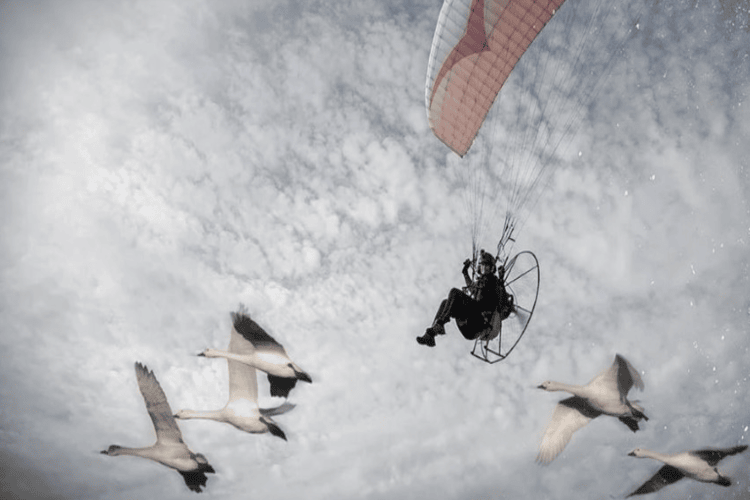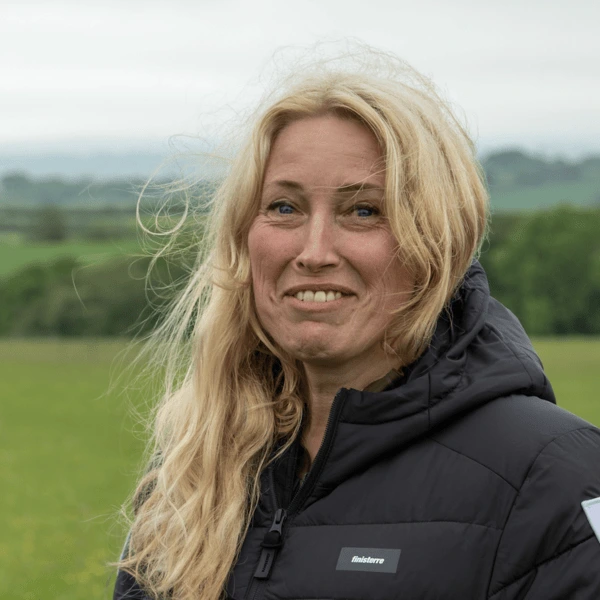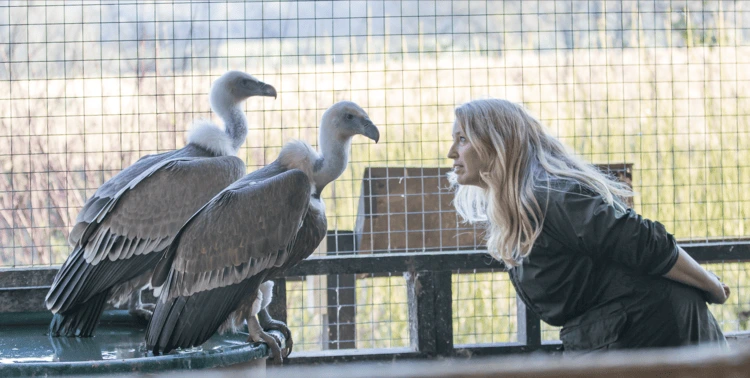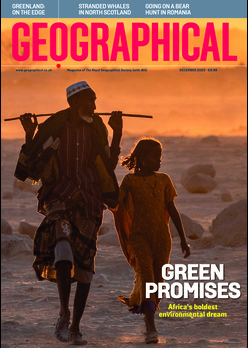
Conservationist Sacha Dench on her latest project focusing on the importance of vultures – and why their survival matters


By
In 1835, while looking out across the desolate Chilean coast, Charles Darwin spotted the distinctive silhouette of a turkey vulture. A ‘disgusting bird’, he later wrote in The Voyage of the Beagle.
Vultures have a deep-rooted image problem, one that conservationist Sacha Dench believes is a major factor in their relatively recent, but drastic decline. Over the past 50 years, numbers across Africa and Asia have crashed as vultures have faced persecution and the growing threats of power line collisions and habitat loss. Some populations have shrunk by as much as 97 per cent.
SARAH’S TRAVEL INSIGHTS
• Push yourself – try new and exciting challenges
• Create impactful stories – they attract more attention than raw data
• Befriend and respect the locals you meet; they are the experts, not you
It’s a concerning situation; as nature’s clean-up crew, vultures help to keep deadly diseases under control. Earlier this year, scientists at Bath University linked the collapse of Indian vulture populations in the early 2000s to the deaths of half a million people, as cattle carcasses piled up uneaten. Yet, despite knowing the critical role they play in healthy ecosystems, so far we’ve been slow to act.
‘I keep thinking that if this was happening to something cute, like a panda, there’s no way anyone would be accepting it,’ says Dench.
One group of people, however, has a very different opinion of these birds.
Want more wildlife reads? Check out our related stories…
‘Pilots. All pilots, but especially those that fly smaller aircraft,’ says Dench. Vultures, she explains, look magnificent in flight – especially from the air – having learnt to use thermal air columns to effortlessly soar and glide through the skies.
It’s just one under-appreciated aspect of these birds that we can expect to see in Dench’s latest project, Flight of the Vultures, a series of 10 scientific expeditions to sites where vultures are facing the biggest challenges – and where conservationists are trying their best to save them. It’s not the first expedition that Dench has undertaken to highlight and study the plight of an endangered bird. In 2017, while working at the Wildfowl and Wetlands Trust, she followed the 7,000-kilometre migration of Berwick’s swan, flying by paramotor from the Russian Arctic to the UK.
It was a journey made all the more difficult by Dench’s fear of air turbulence, brought on by a terrible, earlier experience in a light aircraft. Logistically, however, a paramotor was the only way to follow the birds’ migration route.
Having a mission turned out to be an important motivator. Dench says that it was only knowing the impact that her journey could have, and what might be learnt of the dangers to the swans along the way, that pushed her to face her fear of flying. ‘Before that, I could have imagined doing long kayak expeditions or long underwater diving missions, but I would never have taken to the air.’

While earning Dench the nickname ‘the human swan’, the paramotor also attracted the curiosity of the Russian hunters and Arctic inhabitants she encountered along the migration route.
‘I certainly never looked like a threat,’ she says of her unusual and windswept appearance. ‘It made me more approachable to ordinary people, and that became an important part of befriending the people I met, who often had helpful solutions. Instead of coming in, acting as an authority with all the answers, it gave locals the chance to be the heroes. It wasn’t just about the crazy lady flying.’
While the paramotor certainly helped to attract media attention, Dench says that the key to the project’s success was the impactful stories she created – something that any expedition can replicate.
‘It’s one thing to show people data on a species’ decline, and it’s another to use that data to tell stories that will inspire them and the friends they share it with. I very much tried to create a sense of awe during the Flight of the Swans, to make people’s eyes light up and make them want to listen.’




